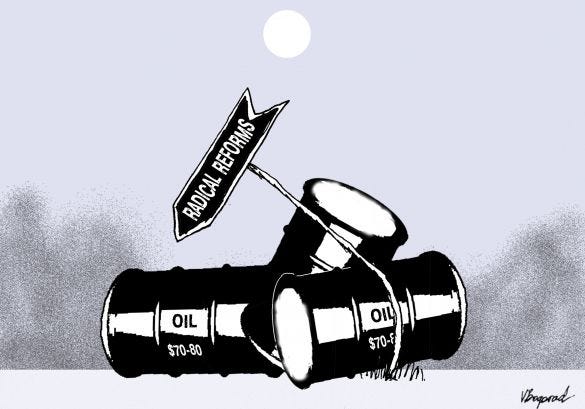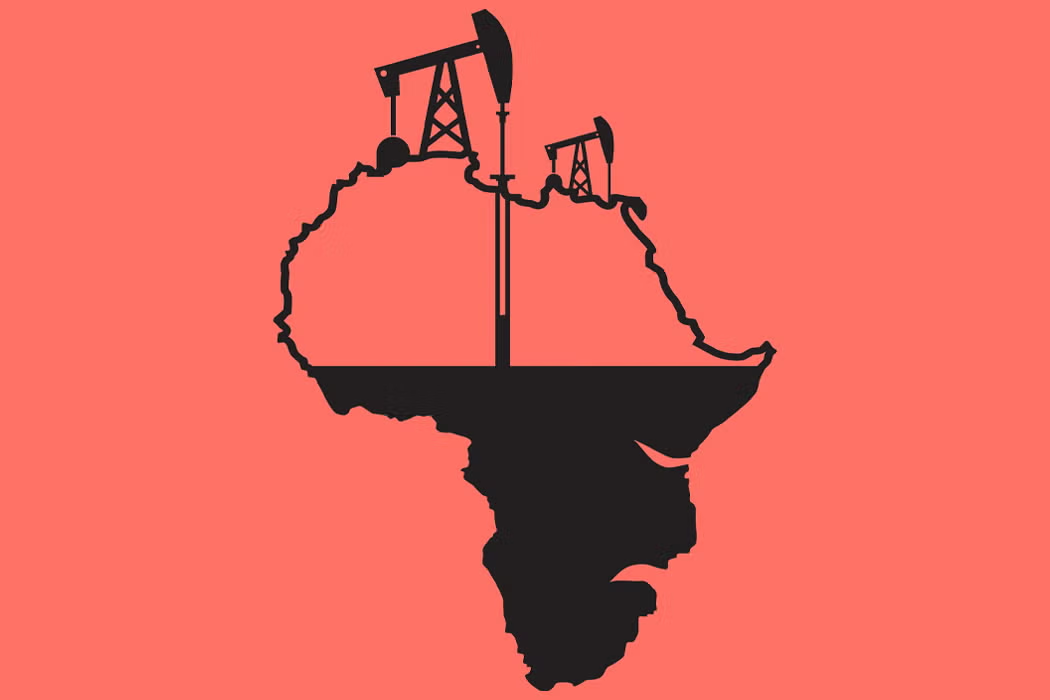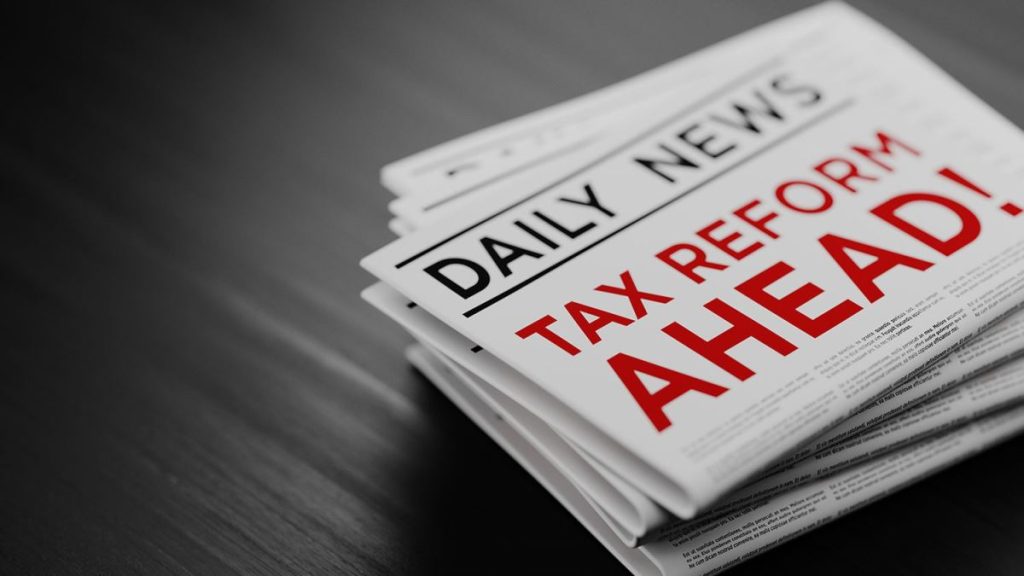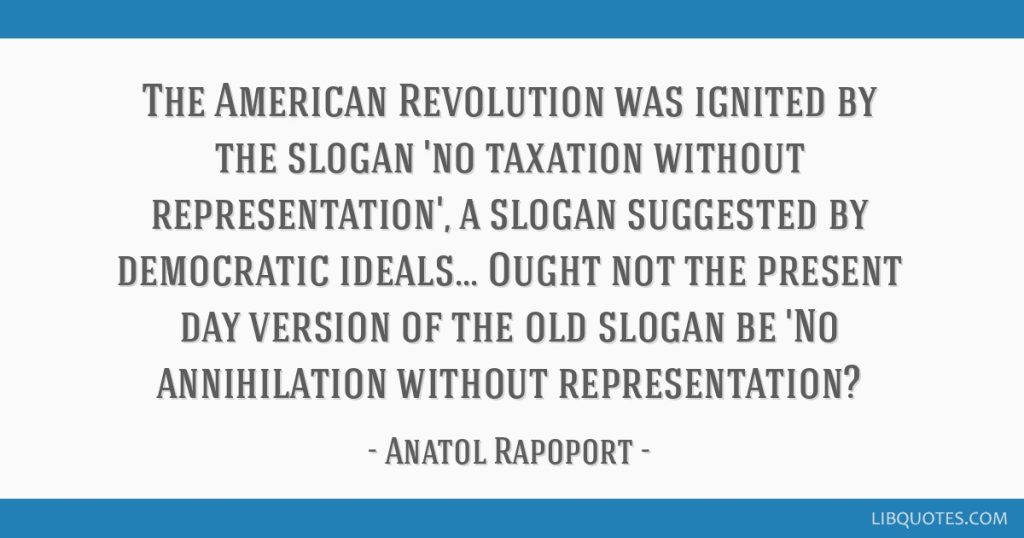When people fund their government through taxation, they demand results. But in Nigeria, oil money has broken this social contract. A government that doesn’t need your taxes, doesn’t need your voice.
By Joshua I. | March 19, 2025
Why Do Some Citizens Care More About Governance Than Others?
In countries like Denmark, a pothole sparks public protests. In Nigeria, entire highways crumble and we just carry on without as much as a wink. Why this difference? The answer lies in a simple equation: taxation = accountability.
The absence of this contract explains why Nigerians tolerate dysfunctional governance. Whereas, taxpayers in Europe or North America, with way more stringent tax regimes, are more likely to hold their governments accountable.

Taxation and the Rentier Economy
According to US News and World Report, 5 out of 10 countries with the most ‘favourable’ tax environments are in the Middle East. According to The Guardian, low taxes and the erratic collection of them are common features of life in most oil-wealthy nations of the Middle East. The reason is that they are mostly what are called rentier economies.
A rentier state funds itself not through taxes or productivity, but by extracting “rent” from natural resources. In Nigeria’s case, as in the case of oil-wealthy countries like Qatar, UAE, Venezuela, Saudi Arabia, etc., it is the rents on oil that fund the state. Thus, the government is essentially a middleman who sells crude oil to global markets to fund its objectives, without requiring or seeking the participation of its citizens.
In Egypt and Panama, the sources of rent for government are not oil but infrastructures like the Suez Canal and the Panama Canal. Foreign aids can also be a source of rents for poorer countries.
Those economies share similar features:
- Their citizens are customers, not stakeholders: Thus, the state’s economic survival doesn’t depend on their approval.
- Government has no taxpayers to hold it accountable: Why cater to voters when oil rigs bankroll the budget?
- A corrupt elite class owns it all: In rentier economies, elites control resource wealth and public needs are sidelined.
- They manipulate with dubious subsidy regimes: Also, these governments with substantial non-tax income can easily and quickly buy themselves out of trouble by keeping prices low through subsidies.
From Saudi Arabia to Iran, Venezuela and Nigeria, all rentier states share a common trait: they are all weak democracies.

Nigeria’s Case
Nigeria earns over 70% of its revenue from oil; this frees our politicians from the pressure to serve taxpayers. The consequences are stark:
- Inexistent public services: Despite earning over $831.14 billion from its oil and gas reserves from 1999 to 2023, Nigeria’s roads, schools, and hospitals rank among the world’s worst.
- Apathy meets impunity: Voter turnout hovers around 30%—why vote when leaders aren’t financially answerable?
- Corruption go unchallenged: Officials embezzle oil funds with little backlash. For instance, an estimated $582 billion has been stolen from Nigeria’s oil sector since independence.
How Taxation Creates Accountability
Compare Nigeria to Germany, where taxpayers fund 47% of government revenue. Germans scrutinize budgets because they feel the pinch of every euro spent. This fuels:
- A high voter engagement: 82.5% turnout in the February 2025 federal election.
- Transparency: Public audits and citizen-led oversight of projects.
- Trust in institutions: Taxes fund healthcare, education, and pensions; this are visible returns on investment.

Can Nigeria Build a Tax Culture?
Breaking the oil curse requires rewiring the economy, and the mindset of citizens. Solutions include:
- Diversify revenue: The 2024 Tax Reform Bill aims to boost non-oil taxes to 50% of revenue by 2030. Less oil reliance means more incentive to listen to taxpayers.
- Show the money: For instance, public dashboards that can show how taxes fund schools or clinics. Lagos State’s “Project Zero Potholes” which is funded by tolls, saw Lagosians buy-in because results were visible.
- Fix unfairness by taxing elites. Nigeria’s informal sector bears the brunt of levies while corporations exploit loopholes.

Conclusion
Oil money has turned Nigeria into a nation of bystanders. But as global crude demand declines, the reckoning nears: A government funded by the people can’t afford to ignore them.
The challenge? Nigerians must demand a state that depends on their taxes, not Shell’s pipelines. As the saying goes: “He who pays the piper calls the tune.”
The aim of the Tax Reform Bills is to simplify a multi-layered tax structure, boost compliance, and generate sustainable revenue for national development. It is not clear if the reforms can lead to the institution of a new social contract that can lead to increased participation.
Join Taxpal today to simplify your tax filings and help build a stronger Nigeria through responsible taxation.
